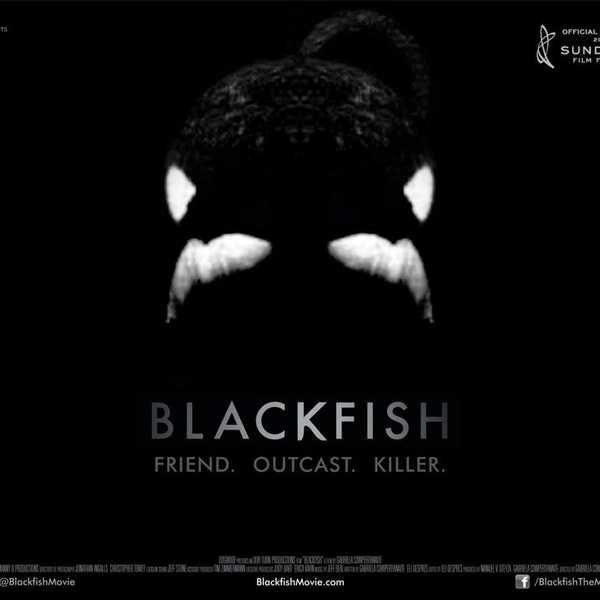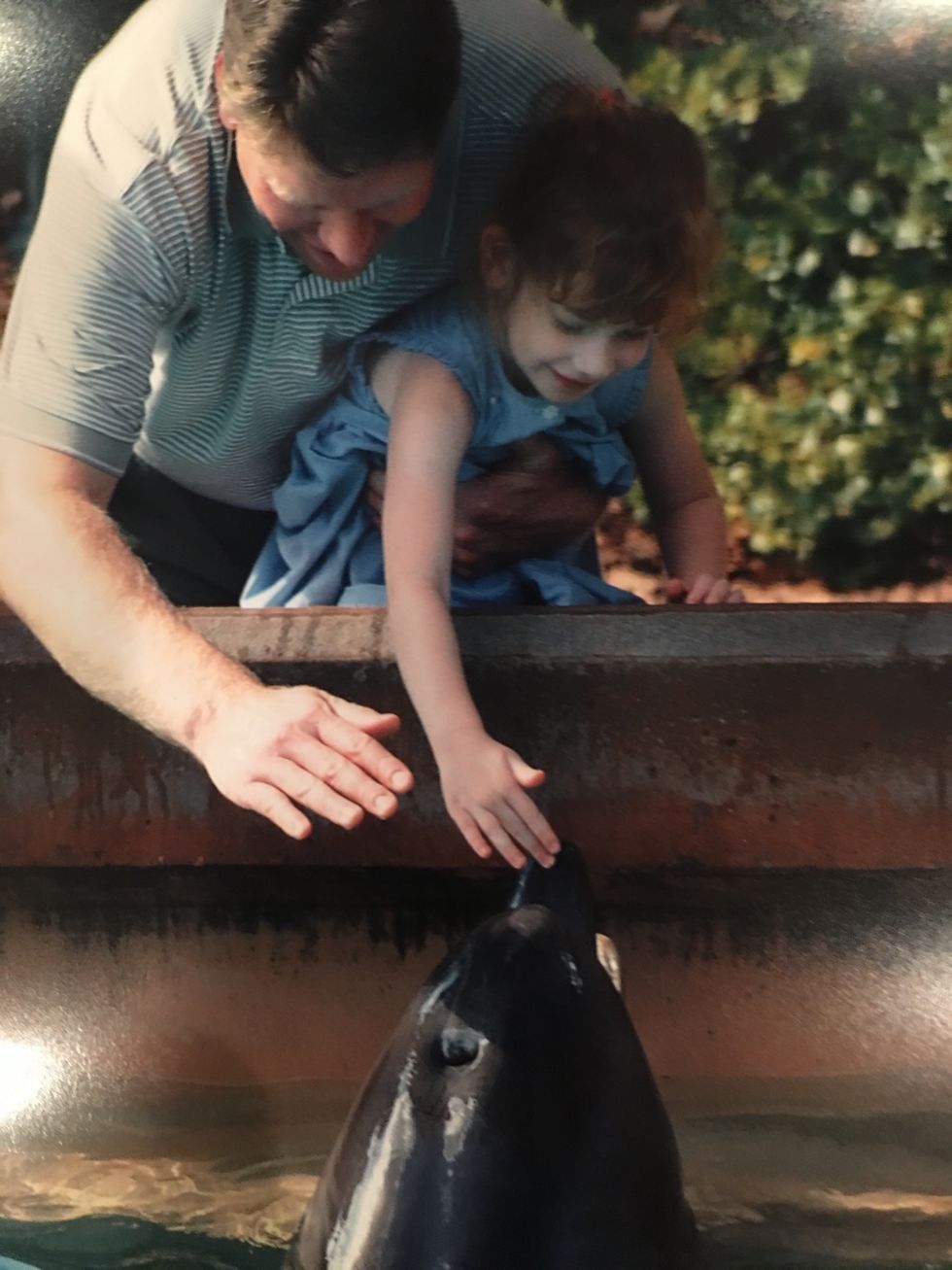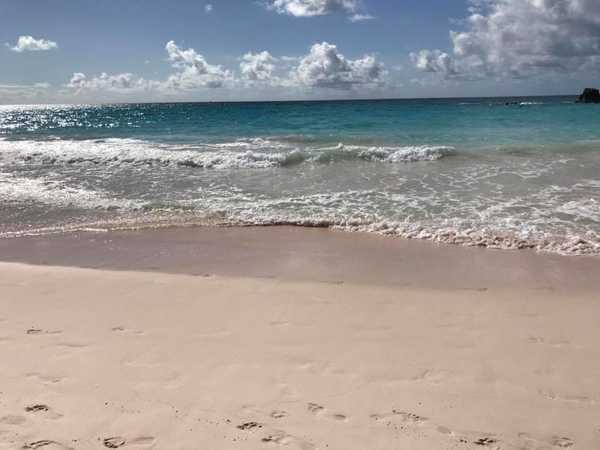SeaWorld is one of those places that houses so many fond memories for so many people. I, for one remember my magical trip to SeaWorld when I was around 4 years old. I don’t remember much, but I do remember my excitement to see the famous Shamu show, and I also remember my dad and I being splashed by this curious dolphin in a petting tank just a few short minutes after this photo was taken.
I never would have even begun to consider the dark side of the seemingly magical place.
In 2013, CNN films released the documentary, "Blackfish," which exposed the appalling industry of captive orca whales with an emphasis on the story of Tilikum, the infamous orca whale that killed three people including his trainer, Dawn Brancheau, at SeaWorld in Orlando in 2010.
Now, I’m not saying the accident wasn’t tragic at all – it’s absolutely terrible what happened. I’m just saying that once you start to hear Tilikum’s history and where he came from, you can start to understand where his behavior came from. At one point in the film, a reporter mentioned something along the lines of: "If I were trapped in a bathtub for most of my life, I think I would be a bit psychotic, too!"
This emotionally wrenching, tautly structured story challenges us to consider our relationship to nature and reveals how little we humans have learned from these highly intelligent and enormously sentient fellow mammals.
We see heartbreaking footage of baby orcas being captured and taken away from their pods in the wild. Throughout the film, we see the different parks Tilikum was taken to and we see the conditions he was confined to for most of his life. Once you start to hear accounts of the treatment of the whales and the environment they resided in, you can understand how the whales would be psychologically scarred. Orcas began to be seen as dangerous creatures to the public, when in reality they have never been documented as aggressive to humans in the wild. The director of "Blackfish," Gabriela Cowperthwaite, stated:
“Tilikum's life was the subject of "Blackfish," but when I began the film, I was terrified of him. I had nightmares about him. It was only when I learned about his capture, his life in captivity, that I began to understand the depth of this tragedy on so many levels.”
Orcas are incredibly intelligent animals with extremely complex cultures that vary by pods and location. Pods are matrilineal, or led by older females, and they are very tightly knit. Orcas communicate with distinct whistles and clicks, and hunt with intricate group tactics. While the average lifespan of an orca in the wild is over 60 years old, it is about half of that in captivity. Currently, there are about 50,000 orcas in the world.
Once "Blackfish" was released, it launched a movement (referred to as the “Blackfish Effect” because the increased awareness inspired action) and caused a lot of questions to arise. SeaWorld lost over $25.4 million when the film was released and cut park attendance dramatically. Protests called for more legal rights for the animals, as well as other marine mammals like dolphins. People began to protest SeaWorld and raise awareness for the conditions the animals endure. Honestly, that gives me a little bit of hope. That makes me believe that the problem isn’t that people don’t care. People just aren’t aware.
It is so tragic that people had to lose their lives in order for others to wake up and realize that what is going on isn’t right. Tilikum became a victim and symbol of human exploitation of the natural world.
Once the “Blackfish Effect” came into full swing, SeaWorld released their version of the story that claims “Blackfish is propaganda, not a documentary.” SeaWorld claims the film, “manipulates viewers emotionally and relies on questionable filmmaking techniques to create “facts” that support its point of view.” SeaWorld released a series of reasons they claim "Blackfish" has it all wrong, and honestly it just left me speechless. When I read the claims on SeaWorldCares.com, yes you read that right, I didn’t know how to react to the absurd excuses SeaWorld makes. All I can say is that they were made in a pathetic attempt to recover from the bad publicity. You can read Sea Shepherd Conservation Society’s rebuttal of SeaWorld’s claims.
Now, here’s the exciting part. Fast forward, because just recently SeaWorld announced that they are effectively phasing out orcas in their parks by stopping their breeding program. There is also talk of an ocean refuge area a non-profit is working to build for the remaining whales to live out the rest of their days.
My hope is that this awakening happens sooner rather than later, and we can stop these industries that are abusing our relationship with nature by raising our voices and inspiring change.






















